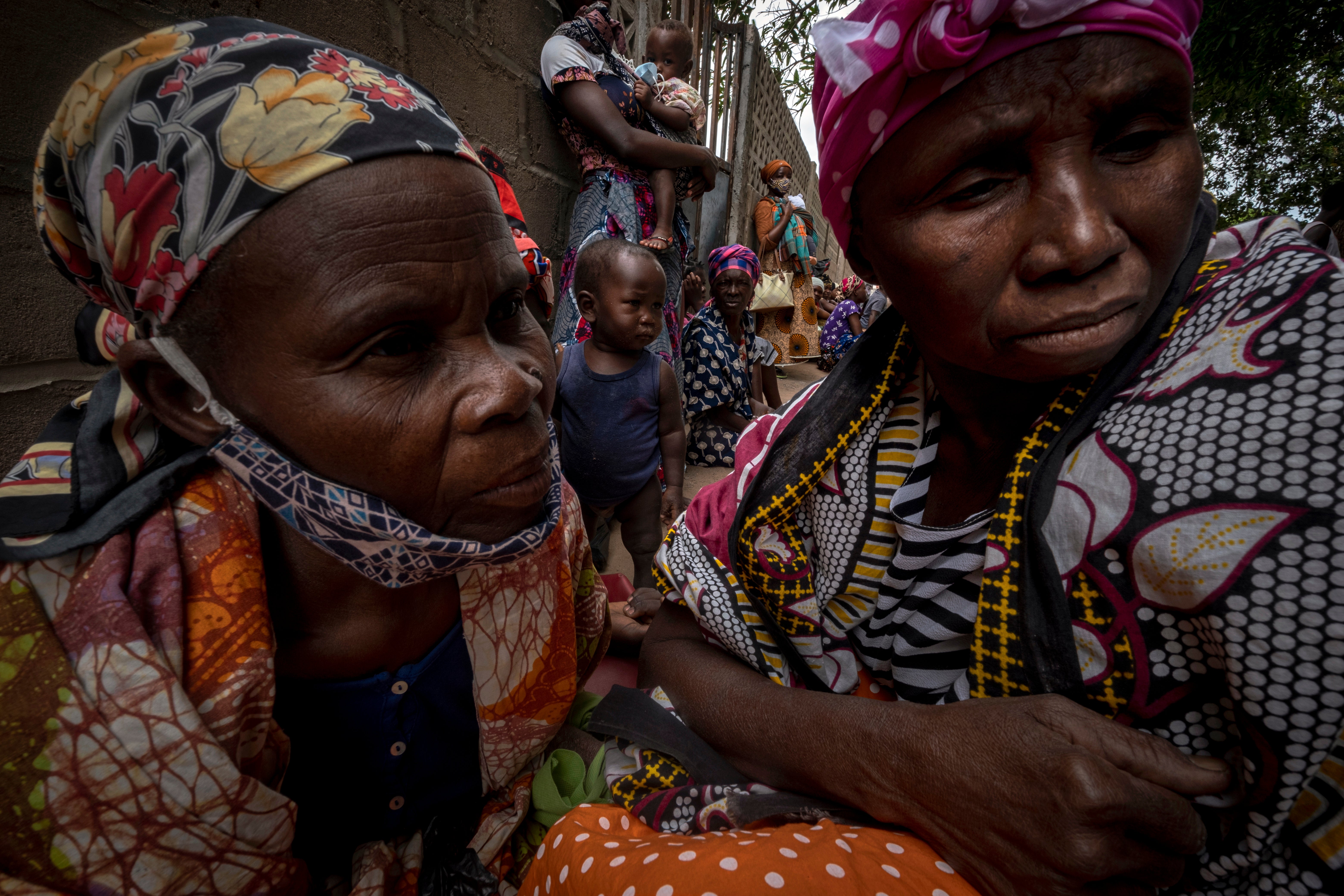Malnutrition rising in Mozambique amid extremist insurgency
The U.N. World Food Program says Mozambique’s humanitarian crisis is rapidly spiraling as a result of the extremist insurgency in the country’s north, with more than 950,000 people in urgent need of food aid

Your support helps us to tell the story
From reproductive rights to climate change to Big Tech, The Independent is on the ground when the story is developing. Whether it's investigating the financials of Elon Musk's pro-Trump PAC or producing our latest documentary, 'The A Word', which shines a light on the American women fighting for reproductive rights, we know how important it is to parse out the facts from the messaging.
At such a critical moment in US history, we need reporters on the ground. Your donation allows us to keep sending journalists to speak to both sides of the story.
The Independent is trusted by Americans across the entire political spectrum. And unlike many other quality news outlets, we choose not to lock Americans out of our reporting and analysis with paywalls. We believe quality journalism should be available to everyone, paid for by those who can afford it.
Your support makes all the difference.Mozambique s humanitarian crisis from the extremist insurgency in the country's north is rapidly spiraling, with more than 950,000 people in urgent need of food aid, the U.N. World Food Program said Thursday.
An estimated 50,000 people fled their homes amid the rebels' five-day siege of Palma earlier this month, swelling the numbers of displaced and hungry.
“People have scattered in many different directions since the recent attacks in Palma. Survivors are traumatized. They’ve had to flee, leaving behind all their belongings, and families have been separated,” said Antonella Daprile, WFP's country director in Mozambique, who visited Pemba, the capital of Cabo Delgado province, where many of the displaced have sought safety.
“We met a young mother who fled the violence with her two daughters. They walked for three days without food or water and have no idea whether the rest of their family survived,” Daprile said.
Many have fled to Pemba on boats, making a treacherous trip in stormy seas, and thousands are still trapped in Palma and the nearby settlement of Quitunda. WFP said it is delivering food to those areas as well as to coastal islands.
“This is the rainy season, the cyclone season, and northern Mozambique is in the eye of the storm,” said Shelley Thakral, WFP's regional spokesperson for southern Africa “I saw families huddled under flimsy tarpaulins for shelter.”
Many of the displaced in Mozambique have been taken in by other families, who are already poor. The host families are also experiencing hunger, aid workers said.
Children are worst affected by the rising rates of malnutrition. Almost 21% of displaced children under 5, and 18% of children of host families, are underweight, according to a recent survey by UNICEF and WFP. The rates of chronic malnutrition, which has lifelong consequences, are at an alarming 50% of displaced children and 41% of children from host communities, according to the survey.
WFP's emergency food distributions provide rations to feed a family for two weeks with supplies of high-energy biscuits, rice, pulses, vegetable oil, water, and canned foods such as sardines and beans.
In response to the growing crisis, WFP is scaling up its response, with plans to assist 750,000 internally displaced people and vulnerable members of the local community across the provinces of Cabo Delgado, Nampula, Niassa and Zambezia.
“This is an operation that requires funding to sustain food assistance and flights to deliver supplies to the hardest-hit, the hardest-access areas,” said Thakral. “We need $82 million until the end of the year to support the vulnerable.”